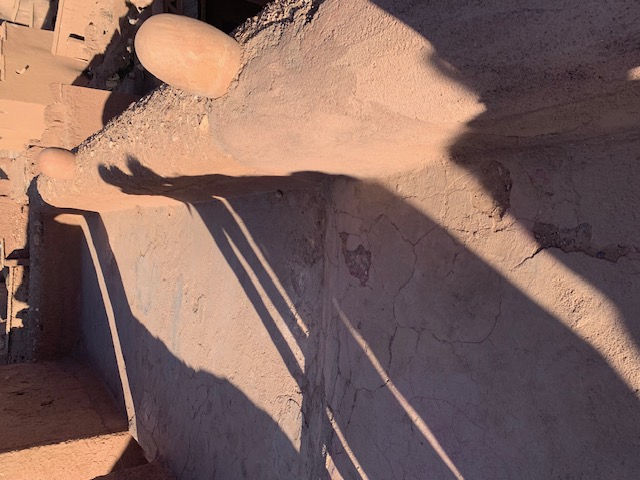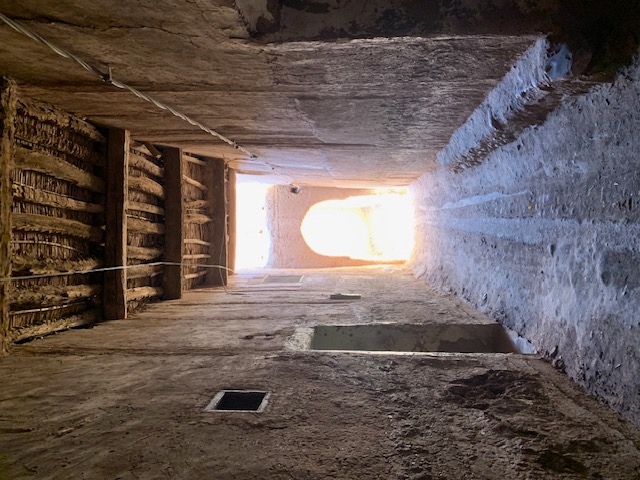Once, I had a dream where I glimpsed a world in the distance, teeming with vibrant nature, enchanting magic, elegantly attired individuals, and dancing bears. Yet, looming closer were agents of "government" who erased it all, replacing it with glossy magazines, robots, and artificial insects—a flat, impoverished, unreal, and fake world. This dream left me with a profound sense of longing and melancholy for the authentic, interconnected world, and a pressing question: How can we reclaim a world where everything pulses with life and connection?
In my conversations, influenced by my Polish upbringing, I often find myself striving for meaningful connections. When time allows, I engage in deep discussions, sharing my observations on topics that absorb my mind. Lately, one such topic has been the perceived collapse of education.
With nearly 30 years of experience as an educator in various settings and countries, I have both an insider’s and an outsider’s perspective on the field. Recently, I’ve come to a stark realization: the educational system, particularly higher education, is on the verge of collapse. When I bring this concern to people’s attention, they often recognize similar symptoms in their own children across all levels of education, expressing similar dismay and concerns about the future of learning. But what does this collapse mean? I will focus here on post-secondary education in the US, as my firsthand experience align with brother statistics and the attitudes of those involved.
Since the Covid-19 pandemic, enrollment in higher education has dropped by about 6%. Yet, I don’t think Covid is the main cause—rather, it accelerated an existing trend. During this unusual disruption of routine, people had more time to reflect on what truly matters to them. In this period of reevaluation, they began to realize they have a choice—not to participate in something that doesn’t deliver the expected value. The expectation of obtaining a degree simply for a “piece of paper” is no longer enough for many to invest time, money, and effort, especially if the experience fails to deliver real value.
So why does education seem to be failing, and why do students increasingly feel that “school sucks”? It is not just the subjective opinion of few—studies show that young people consistently rate education as one of the most boring activities *see comment below. The learning experience is often shallow and uninspiring, more of a laborious process than an engaging one. And this dissatisfaction is reflected in the mental health crisis among students, with many struggling with mild to severe mental health issues—an alarming trend among the youth who are supposedly among the most sophisticated.
Part of the blame lies with the rapid development of technology. With common knowledge widely accessible online, if schools fail to offer something deeper, attending can seem like a waste of time. Additionally, shrinking attention span, influenced by constant exposure to digital stimuli, compounds the problem.
But beyond the problems with facilitating learning processes and creating effective environments, what are the core, real values that education is missing? What foundational principles have eroded, and due to the lack of solid backbone, are leading to this institutional collapse? One of the key values is dignity. Educational institutions are supposed to uphold dignity—both for their employees and students—but is this truly being practiced? To what extent do institutions promote this value, and do those involved in the educational system feel that it’s being fulfilled? The answer is often no.
If education is truly a gateway to tomorrow, shaping our vision for the future and what we expect of ourselves, others, reality, and the world around us, then we must ask: What kind of world do we want to live in? How do we want to exist in it, both individually and collectively? What knowledge and skills are truly essential for living the life we desire? And perhaps most importantly, where can we find good examples and processes to model and guide us toward achieving that life?
Each page and service on this website is an attempt to address these questions in an integrated and systematic way, using all the tools I have gathered throughout my career.
Welcome and thank you for your participation.
For a more detailed article on this topic, you can visit my LinkedIn page: [Link to article].
*The statement that young people consistently rate education as one of the most boring activities is supported by several studies. A nationwide survey conducted by the Yale Center for Emotional Intelligence found that nearly 75% of high school students report negative feelings related to school, with boredom being one of the top emotions. In fact, 69.5% of students in the survey described feeling bored most of the time while at school (Harvard Graduate School of Education)(YaleNews). Another study from the University of Munich showed that boredom can have a direct impact on academic performance, creating a cycle where boredom leads to lower test results, which in turn increases boredom (Harvard Graduate School of Education). These findings illustrate a widespread disengagement from the learning process, highlighting the urgent need for educational reform to make school more engaging and meaningful.
Discussion Forum
Have any thoughts to share regarding what you've read? I invite you to start a discussion below in the comments section!
Join the lively community!
Be the first to find out about new events, guides + stories, and challenge series.







Lorem ipsum dolor sit amet, consectetur adipiscing elit. Suspendisse varius enim in eros elementum tristique. Duis cursus, mi quis viverra ornare, eros dolor interdum nulla, ut commodo diam libero vitae erat. Aenean faucibus nibh et justo cursus id rutrum lorem imperdiet. Nunc ut sem vitae risus tristique posuere.
Heading
Heading